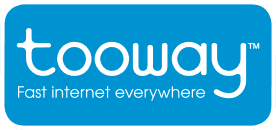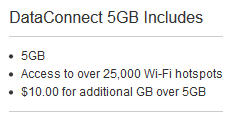 Comcast has filed a patent application that would let the company expand its Wi-Fi network by turning customers into human Wi-Fi hotspots and convincing them to offer Comcast Wi-Fi from rental cars, bicycles, and buses.
Comcast has filed a patent application that would let the company expand its Wi-Fi network by turning customers into human Wi-Fi hotspots and convincing them to offer Comcast Wi-Fi from rental cars, bicycles, and buses.
FierceCable found the patent application, called “Mobile WiFi Network” that would let the cable company build a dynamic mesh network of mobile hotspots that could be used by its customers. But instead of placing permanent Wi-Fi antennas on buildings or light posts, Comcast wants a patent to extend its network by using vehicles and people that can be positioned exactly where Comcast needs better wireless coverage.
In one example, Comcast’s proposed roving rental car fleet would use incentives to convince renters to activate the car’s built-in hotspot in return for free or discounted services.
“The offer may indicate that if the rental car is dropped off at one or more designated parking spots, the driver will receive a discounted car rental rate, free parking, a coupon for items sold at the designated parking spot, etc. In this manner, the driver may be incentivized to assist in managing the network of transceivers to improve the coverage area. A driver wishing to accept the offer may press a button on the car’s computing display, or other computing device (e.g., using a smart phone application) to respond to the offer with an acceptance,” Comcast states in the patent application.
 If a driver says no, Comcast can up the ante with an even better offer in response. If that does not work, Comcast can expand its Wi-Fi network dynamically in other ways.
If a driver says no, Comcast can up the ante with an even better offer in response. If that does not work, Comcast can expand its Wi-Fi network dynamically in other ways.
“It should be understood that the process could be implemented by placing transceivers in or on any other mobile unit, such as bicycles, Segways, buses, police cars, taxis, boats, persons, dedicated vehicles, etc. or any combination of such mobile units,” Comcast wrote.
Last month, Comcast announced it would activate a public Wi-Fi network over wireless routers supplied to customers on a secondary channel.


 Subscribe
Subscribe Cablevision has begun notifying Florida customers it is pulling the plug on its market trial OMGFAST wireless broadband and voice services Aug. 19.
Cablevision has begun notifying Florida customers it is pulling the plug on its market trial OMGFAST wireless broadband and voice services Aug. 19. Just as in the United States, the promises made by satellite broadband providers are turning out to be too good to be true.
Just as in the United States, the promises made by satellite broadband providers are turning out to be too good to be true. Unlimited customers paying £75 per month have been told they are “abusing” the service and that it has effectively run out of capacity and is oversold.
Unlimited customers paying £75 per month have been told they are “abusing” the service and that it has effectively run out of capacity and is oversold.
 Frontier Communications Northwest, Inc., has won an end to rate regulation, arguing sufficient competition exists between telecom companies in Washington State to make the oversight unnecessary.
Frontier Communications Northwest, Inc., has won an end to rate regulation, arguing sufficient competition exists between telecom companies in Washington State to make the oversight unnecessary.
 AT&T’s DataConnect plan, suitable for fixed wireless home use,
AT&T’s DataConnect plan, suitable for fixed wireless home use, 